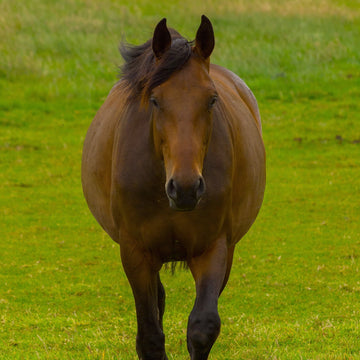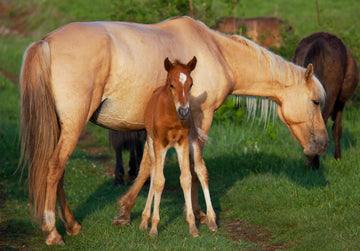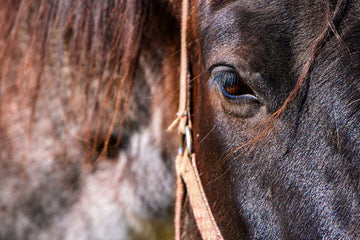Does your horse eat continuously but show no improvement in body condition? What could be happening? There are several factors to evaluate when aiming to increase a horse's body condition.
Evaluate the horse’s health
Significant loss of body condition, or constant difficulty in maintaining it, are reasons to perform a full medical examination to determine whether there is a health issue preventing normal weight gain.
Dental problems are often the cause of weight loss or difficulty in gaining weight. Horses must chew their feed thoroughly, so if dental care is neglected and oral discomfort occurs, feed intake may be compromised.
Gastric ulcers can also lead to inappetence. A recent study revealed that over 58% of horses across various sports disciplines have gastric ulcers.
Consuming large quantities of cereals or cereal-based feeds that have not undergone thermal treatment is associated with decreased starch digestion efficiency and the passage of undigested starch into the hindgut. This can lead to subclinical intestinal acidosis, which may result in inappetence, mild colic of unknown origin, poor feed efficiency with weight loss, behavioral changes, and decreased performance.
Internal parasites compete with the horse for nutrients present in feed, reducing the absorption of those nutrients by the horse. Proper health prophylaxis is essential for maintaining a healthy state and good body condition. The horse owner can ask the veterinarian to assess the parasite load (via fecal egg count) and establish an effective individualized deworming program.
Adequate feeding – Quality and quantity
Forage
Equine diets should be based on high-quality forages. Providing high-quality forage in appropriate quantities is the best way to support healthy digestion and maintain proper body condition. The forage component becomes even more important if the horse suffers from conditions like gastric ulcers or acidosis. Legume forages (alfalfa or clover) are richer in protein and energy than grass forages, so this should be considered.
Low-quality forages or those in poor conservation condition, showing visible signs of dust, fermentation, or mold, should be avoided, as they may lead to significant health problems. Poor-quality feed and forages with low nutrient content may cause deficiencies, especially in more demanding horses or those engaged in more intense physical activity.
Compound feed
Whenever there is weight loss or difficulty maintaining body condition, the feeding management should be carefully analyzed. Compound feed should consist of high-quality, properly processed raw materials, balanced in energy, protein, vitamins, and minerals. It is an important ally in maintaining body condition and meeting the horse's nutrient requirements, depending on the stage (pregnancy or lactation) or physical activity (more or less intense) it is undergoing.
To the established diet, we may add ingredients to increase the caloric density of the feed or improve its digestibility. For this purpose, we can include:
-
Fat sources (linseed oil or fish oil), which have significantly higher energy density than other feedstuffs and are a source of omega-3;
-
Super fibers, which are fermented in the hindgut and provide an extra caloric boost;
-
Probiotics and prebiotics, which support digestion and ensure that the horse gets the most out of its feed;
-
Others.
Environmental factors and group dynamics
If the horse is healthy and the diet is adequate, the next factor to consider is the environment, as it may cause stress and consequently lead to weight loss.
If the horse is in a group, check the hierarchical dynamics between individuals (dominant members may prevent others from eating properly). If it is confined, is the confinement a source of stress? All of these factors should be assessed.
Keeping horses relaxed is essential to encourage feeding and support efficient digestion.


